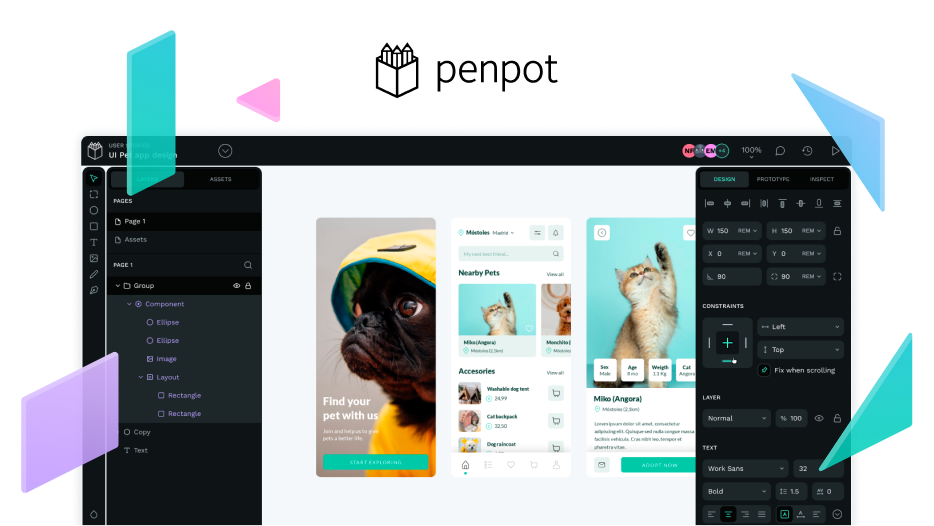The Open Source ecosystem allows for quite a number of sustainability plans. I’ve personally been involved in this journey for more than 25 years and that’s probably why I’m particularly excited to share with you our official plans for Penpot’s sustainability model.
Many of you already know that Penpot is a product made by an open source company called Kaleidos (think of Ubuntu & Canonical) and, even with the amazing contributions from the community, keeping a team this size is expensive. And rightly so, a platform like Penpot requires the best talent around for both product development and community efforts.
We were very fortunate to get some serious funding to kickstart the project three years ago. Thanks to that we have been able to keep a steady development pace. At the same time, we know we can build a very successful open-source friendly business model and generate our own revenue starting in 2025. Wonderful, isn’t it?
Now, at Penpot we all want to stay true to these two premises:
- We want our most feature-complete offer to be fully open-source.
- We don’t want our value capture strategy to be dependent on services.
This is a tough one. It feels counter-intuitive and incompatible with traditional Open Core business models found in Open Source. It feels that way because it’s true.
And yet, we believe we could bring some innovation to open-source friendly business models.
Would paying for a more limited product make sense?
I had the pleasure to publicly share, for the first time, this new business model at Open Source Experience in Paris on December 4th 2024. We call it the Open Nitrate Model and I explained the context and what it means in that 15-min talk after I discuss a particular implementation of it, which we internally codename “the Tax the Controller” model.
At Penpot we believe organisations should pay when they want to govern how the tool is used. This way we don’t discuss basic versus advances but freedom versus control
Within the Open Nitrate Model, we are focused on creating a separate closed-source product who’s only reason to exist is to control the open source product and limit the inherent freedom that new and power users have the right to enjoy by default.
It’s never black or white, of course
In other words, our “nitrates” will be the features that represent the “governing or controlling” counterpart of the laissez-faire Penpot ethos. These will be shipped separately and won’t be part of Penpot as an open source platform, which will remain free and unlimited for everyone.
PS: We plan to write a more detailed document about this uncharted territory very soon. In the meantime, we will refer to this OSX talk
[Update Feb 12th] We loved having the “extended version” of my Paris talk. For the most part I was able to deliver the same ideas as in Paris but at a slower pace (I dub this version, the “classroom experience”). You can watch the whole thing if this is your first encounter with our business model (and you have the appetite for an unconventionally long exposure) but I’ll just insert the bit where I replied to many Community questions and the Live questions as well.





